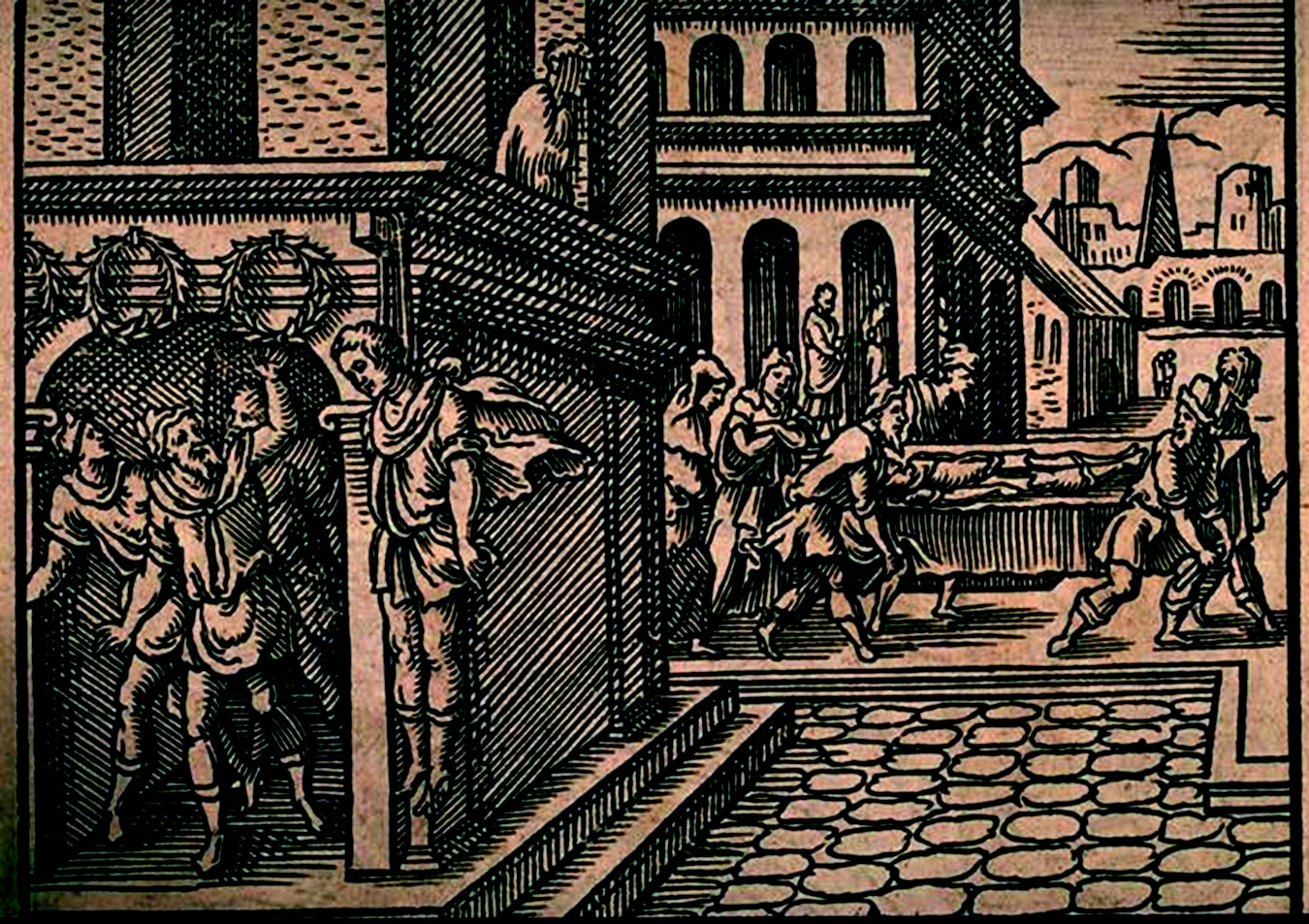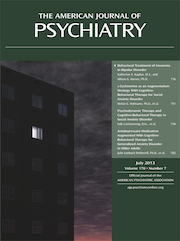In
Metamorphoses, Ovid tells the story of Iphis and Anaxarete (
1, book 14:698–761). Iphis of Salamis, a young man overcome with desire for a princess named Anaxarete, brings garlands and poetry to her house. She spurns him, so he returns to her house one last time and says, “You win, Anaxarete, and no longer will you have to endure disgust with me…. For you win, and I die gladly. Come, iron-hearted one, rejoice!” (
1, book 14.718–721). Ovid then writes, “He spoke, and raising his moist eyes and pale limbs to the door-posts decorated often by garlands, when he fastened the cord of the noose to the top of the door-posts, he said, ‘Are these garlands pleasing to you, cruel and wicked [woman]?’ and inserted his head, but even then turned to her, and his lifeless weight hung, his throat crushed” (
1, book 14.733–738).
Anaxarete, unmoved by the suicide, watches his funeral procession taking place on her street. She goes to her window, looks out at Iphis’s body, and suddenly becomes hardened into stone by a vengeful Venus, Goddess of Love.
This poem is beautifully illustrated in a woodcut by Vergilius (Virgil) Solis from 1581 (shown above). Virgil Solis (1514–1562) was a German draftsman and engraver who made this woodcut as part of a series depicting scenes from Ovid’s
Metamorphoses (
2). In the woodcut, different temporal portions of the tale occur simultaneously as narrative art. In the foreground, Iphis’s lifeless body hangs from the doorpost adjacent to the garlands that he had placed earlier, while in the window above stands Anaxerete’s body metamorphosed into a stone sculpture. Her gaze is fixed onto the background, showing the funeral procession for Iphis.
Paraclausithyron is a motif of Greek and Roman poetry that grew out of the
kômos (rowdy, obscene ballad) into the story of the
exclusus amator (shut-out lover) (
3). It is a story of a young male suppliant, sometimes inebriated, presenting himself at the threshold of a woman’s home and singing a song or professing his love. He is then spurned by the cold-hearted woman, at which point he either falls asleep at her door or leaves. Catullus’s lighthearted take on paraclausithyron has the lover addressing the door directly, while Propertius tells the story from the perspective of the door itself (
3). Ovid’s paraclausithyron, however, is grave in that the young man hangs himself, much like the garlands, on her threshold. Iphis, with his aggressively self-destructive act toward Anaxarete, represents infatuation, rejection sensitivity, and poor decision making, somewhat reminiscent of how we currently view borderline personality (
4).
The motif of paraclausithyron has resonated with modern poets and songwriters. The symbolic imagery of a door separating lovers is central to Bob Dylan’s “Temporary Like Achilles” (
5) and Steve Earle’s “More Than I Can Do” (
6). In Tennyson’s “In Memoriam” (section 19), the narrator directly address the doors of the home of a former friend (
7). Additionally, there are parallels between the rapping at the door in Edgar Allan Poe’s “The Raven” and elegiac paraclausithyron (
8). The door remains a powerful metaphor for the potentially permeable border between heartbreak and all-encompassing love.
Acknowledgments
The authors thank Z. Philip Ambrose, Ph.D., and M.D. Usher, Ph.D. (University of Vermont), and David Mankin, Ph.D. (Cornell University), for their input.


